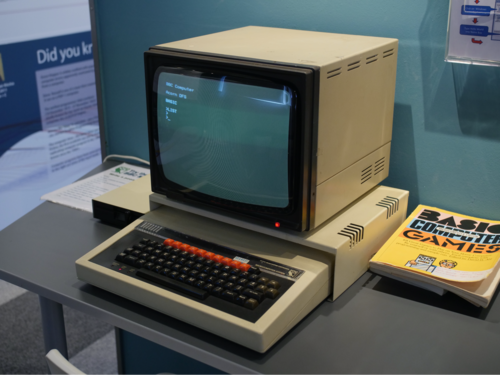The BBC Microcomputer, also known as the BBC Micro, was a series of computers developed and sold by Acorn Computers in the 1980s. The machine was designed to be used in schools and became hugely popular in the UK education system, as well as among hobbyists and home users.

The BBC Micro was first released in 1981 and was based on the MOS Technology 6502 processor, with a clock speed of 2MHz. It was equipped with a range of features, including 32KB of RAM (expandable up to 64KB), a built-in BASIC interpreter, and a range of expansion ports. The machine also featured a unique operating system called BBC BASIC, which was developed specifically for the computer and included a range of powerful features for programming and education.
One of the most notable features of the BBC Micro was its advanced graphics and sound capabilities. The machine was capable of displaying high-resolution graphics in up to 16 colours, as well as producing complex sound effects and music. This made it an ideal platform for educational games and multimedia applications, as well as for more advanced programming projects.
Another key feature of the BBC Micro was its modular design. The machine featured a range of expansion ports, which allowed users to connect a wide range of peripherals and add-ons, including floppy disk drives, printers, and additional memory. This made it easy for users to upgrade and expand their machines over time and also helped to extend the lifespan of the platform.
The BBC Micro was widely used in schools throughout the UK, where it was used to teach a wide range of subjects, including computer science, mathematics, and design and technology. The machine was also popular among hobbyists and home users, who used it for a wide range of applications, from gaming and programming to music production and word processing.
Although the BBC Micro was eventually superseded by newer platforms, such as the Acorn Archimedes and the IBM PC, it remains an important part of the history of computing in the UK. Its modular design, advanced graphics and sound capabilities, and powerful programming features made it a hugely influential platform that helped to inspire a generation of computer enthusiasts and programmers. Today, the BBC Micro is remembered as an iconic piece of computing history and continues to be celebrated by enthusiasts and collectors around the world.










